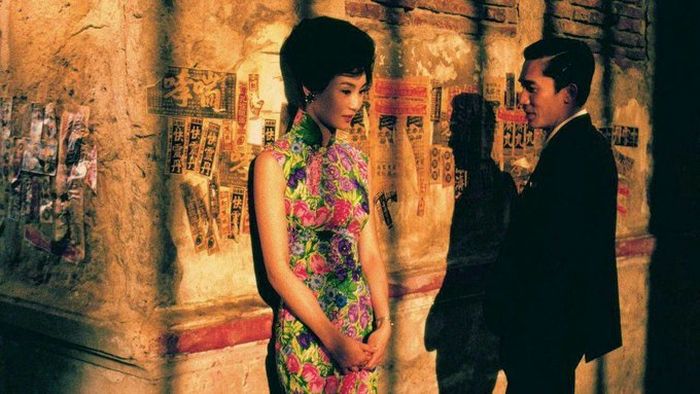Men written by women
Columnist Anna Chan discusses the ways that women film creators dare to be truthful in their depictions of men
There are two films. In one, a man meets a woman, starting a relationship with her while maintaining his family and relationship with his wife. In the other, a man reconnects with a woman while his wife is pregnant at home, and decides not to begin an affair with her despite their attraction.
The first film is Le Bonheur (1965), meaning ‘Happiness’ in English: when the wife Thérèse asks her husband François why he seems particularly happy, he explains, as they picnic in the woods surrounded by the most perfect ‘cottagecore’ scenery, that his happiness with Thérèse and their children was only enhanced by his relationship with Émilie. They fall asleep, and when François wakes up Thérèse is gone. Searching around, he finds that anglers have retrieved her body from the lake. “There is a willow grows aslant a brook [...],” Shakespeare writes, “When down her weedy trophies and herself / Fell in the weeping brook. Her clothes spread wide, / And, mermaid-like, awhile they bore her up.” Thérèse is a figure mirroring Hamlet’s Ophelia, drowning, off-screen, adorned by floral idyll with no indication of whether her death was deliberate or accidental.
In the second film, Love in the Afternoon (L’amour l’après-midi, 1972), the husband Frédéric meets with Chloe in afternoons while his wife Helene is at home pregnant with their second child. Chloe decides to seduce Frédéric, but he manages to overcome moments of weakness. The film ends with his rejection of Chloe and a return home to domestic bliss. The last of Éric Rohmer’s Six Moral Tales, Love in the Afternoon is explicitly didactic in its call for us to, as Roger Ebert described, “stop playing games and embrace each other with honesty.” Despite straying, Frédéric is written by Rohmer to finally do what he’s supposed to do.
In Le Bonheur, François and their children live in the countryside for a while after the death of Thérèse, but soon François returns to work, looks up Émilie, and she moves in with them. They go on trips to the countryside, she looks after the kids, the nuclear family is restored, and the man is indisputably happy. The colours are the most beautiful in any film I have seen. “I imagined a summer peach with its perfect colours,” Varda stated, “and inside, there is a worm.” A pastel brightness continues throughout Le Bonheur, creating horror in broad daylight as a precursor to Midsommar. It is horror because Thérèse dies, and then is replaced so easily and so happily. The perpetual perfection of colours only makes the worm inside more monstrous.
“Varda is looking; she does not exercise judgement, prescribe morals, nor guarantee redemption”
The film was received with uproar for its endorsement of François’ behaviour. Audiences wanted to see a redemption à la Love in the Afternoon. But Agnès Varda, the writer and director of the film, responds: “It was an era that existed. And I said something terrible: that each person is unique but replaceable. That’s the idea. It’s true and a little sad.” Varda certainly does not endorse the behaviour of François, nor support the patriarchy or the mistreatment of women. While the man written by a man ends as what a man should be, the man written by a woman is how they often, truthfully are – their flaws, their thoughtlessness, their love yet disregard for women.
Varda is perhaps the most successful of her French New Wave peers. She best captured the movement’s essence: its experimentation, irony, existentialism and challenging of convention. It is her audacity not least to begin directing in the 1950s with no training in the essentially male-monopolised field, but the desire to “invent cinema.” It is her refusal to follow the conventional denouement to present her perspective, such as the one Rohmer wrote, but to play into the disturbing. It is the irony produced by her presentation of this uncomfortable truth through the pastels of bliss where Varda’s voice – her gaze – comes through. How men can be written by women is not to be ideal, desirable, or perfect, but to be as they are, tinged with the ironic snarl of the creator when he sins and comes out unscathed and happy as ever.
None of us want to be subjects of the gaze, but to be the one looking. Varda is looking; she does not exercise judgement, prescribe morals, nor guarantee redemption. She is no God, and there is no eschatology.
As Varda states, “The first feminist gesture is to say: Ok. They’re looking at me. But I’m looking at them. The act of deciding to look, of deciding that the world is not defined by how people see me, but by how I see them.” This in itself is power.
 News / Right-wing billionaire Peter Thiel gives ‘antichrist’ lecture in Cambridge6 February 2026
News / Right-wing billionaire Peter Thiel gives ‘antichrist’ lecture in Cambridge6 February 2026 News / John’s duped into £10m overspend6 February 2026
News / John’s duped into £10m overspend6 February 2026 News / Epstein contacted Cambridge academics about research funding6 February 2026
News / Epstein contacted Cambridge academics about research funding6 February 2026 News / Lucy Cav students go on rent strike over hot water issues6 February 2026
News / Lucy Cav students go on rent strike over hot water issues6 February 2026 News / Corpus FemSoc no longer named after man6 February 2026
News / Corpus FemSoc no longer named after man6 February 2026










